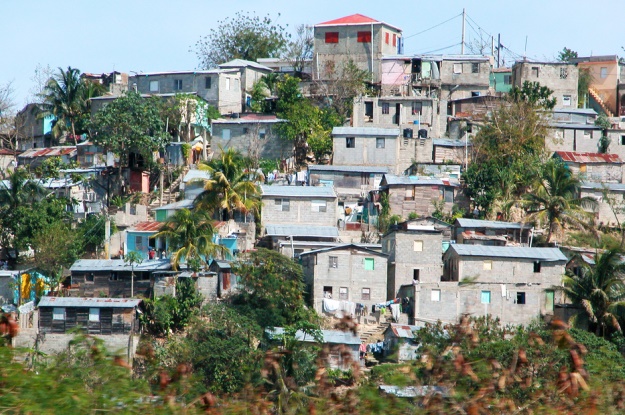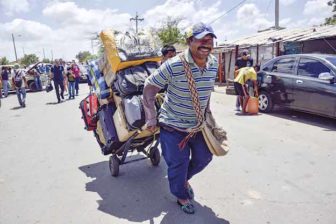The Caribbean is caught in a housing trap. The cost of living is high: building a house in Kingston is three times more expensive than in a typical Latin American city. This has left ten million people in The Bahamas, Barbados, Cuba, Dominican Republic, Guyana, Haiti, Jamaica, St. Lucia, Suriname, and Trinidad and Tobago without a decent roof over their heads. Building adequate housing for this population would cost about $18 billion – a number that only grows as the rising cost of living pushes more people out of the market. Without action, conditions will worsen, as more than 80 percent of the Caribbean population will be living in cities by the year 2050.
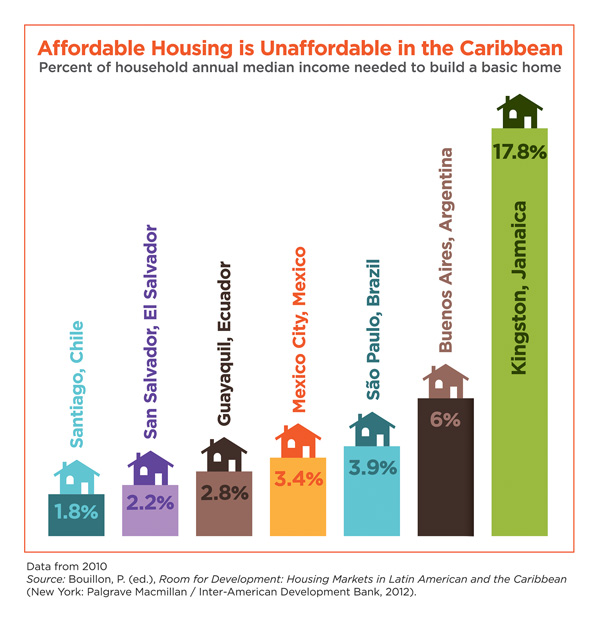 This trap does have a way out, however. A recent study by the Inter-American Development Bank (IDB), The State of Social Housing in Six Caribbean Countries, has looked at successful efforts to tackle the lack of affordable housing across the region. Governments have launched programs to expand social housing, lower mortgage lending costs, and promote disaster-resistant buildings. The Dominican Republic is a case in point: in 1990, close to thirty percent of Dominicans lived in substandard housing; this proportion has decreased to under fifteen percent today.
This trap does have a way out, however. A recent study by the Inter-American Development Bank (IDB), The State of Social Housing in Six Caribbean Countries, has looked at successful efforts to tackle the lack of affordable housing across the region. Governments have launched programs to expand social housing, lower mortgage lending costs, and promote disaster-resistant buildings. The Dominican Republic is a case in point: in 1990, close to thirty percent of Dominicans lived in substandard housing; this proportion has decreased to under fifteen percent today.
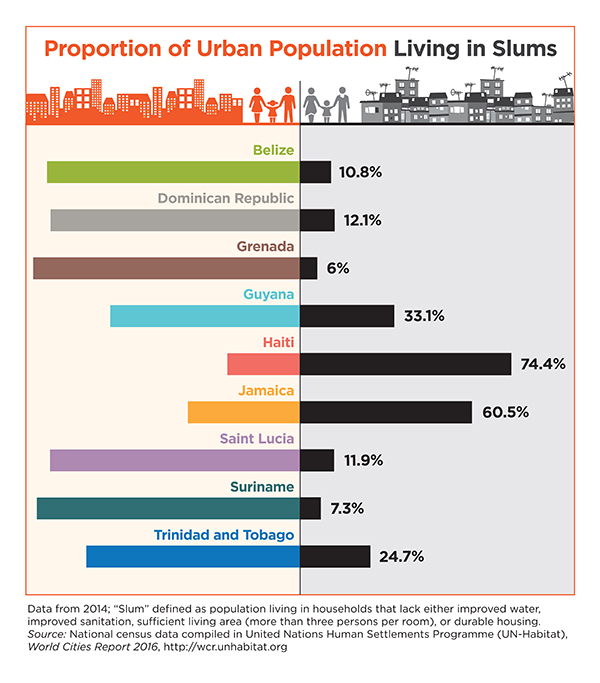 Despite this progress, much more needs to be done. By looking at what has worked and the gaps that remain, an affordable housing action plan for the Caribbean would contain at least three elements:
Despite this progress, much more needs to be done. By looking at what has worked and the gaps that remain, an affordable housing action plan for the Caribbean would contain at least three elements:
First, we need new alliances between financial institutions, housing ministries, and construction firms. A first generation of partnerships created many successful options for the middle class but failed to find solutions for lower income residents. Government alone cannot fill the gap. To incubate new low-cost housing developers, governments need to design attractive packages that reduce the costs of acquiring land and support the development of durable low-cost building materials. The development of new rent-to-own schemes in Barbados and Trinidad & Tobago illustrate the sort of innovative approaches that are needed.
Second, if we are truly to leave no one behind, we need a new social contract with informal settlements in Caribbean cities. Neighborhood upgrading projects could revitalize the region’s shanty towns, bidonvilles and tugurios through new housing, public spaces, infrastructure, and schools. But these programs will only succeed if they are done in close collaboration with residents and community-based organizations. Governments already acknowledge that low-income families build and renovate their homes at a massive scale in the region. Suriname leveraged this expertise by providing discounted building materials to certified community-based organizations trained in housing construction. This led to the repair and expansion of thousands of homes. Jamaica too is driving down costs using this model, providing free design services that allow social housing residents to both expand their homes and comply with building codes.
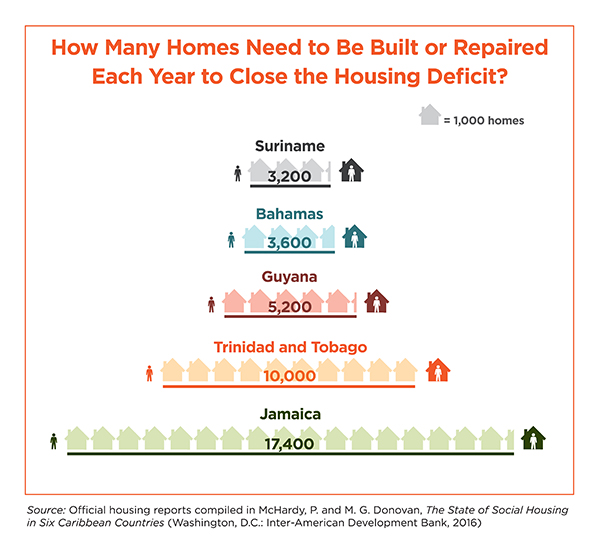 Lastly, we must call on governments at all levels to establish and enforce housing policies with explicit targets for affordable housing. Elevating housing policy as a national development priority would revitalize distressed neighborhoods and limit sprawl. Last year, United Nations member states committed to “ensure access for all to adequate, safe and affordable housing” by 2030, as spelled out in the landmark Sustainable Development Goals (SDGs). This is fundamental as Caribbean residents flock to cities in decades to come.
Lastly, we must call on governments at all levels to establish and enforce housing policies with explicit targets for affordable housing. Elevating housing policy as a national development priority would revitalize distressed neighborhoods and limit sprawl. Last year, United Nations member states committed to “ensure access for all to adequate, safe and affordable housing” by 2030, as spelled out in the landmark Sustainable Development Goals (SDGs). This is fundamental as Caribbean residents flock to cities in decades to come.
The need for transformative action on this front in the Caribbean is clear and conditions are ripe. It is up to all leaders in government, business, and civil society to galvanize housing and radically improve quality of life in the region.
—
Donovan is a senior housing and urban development specialist at the Inter-American Development Bank (IDB) and Turner-Jones is the General Manager of the Caribbean Country Department of the IDB.


